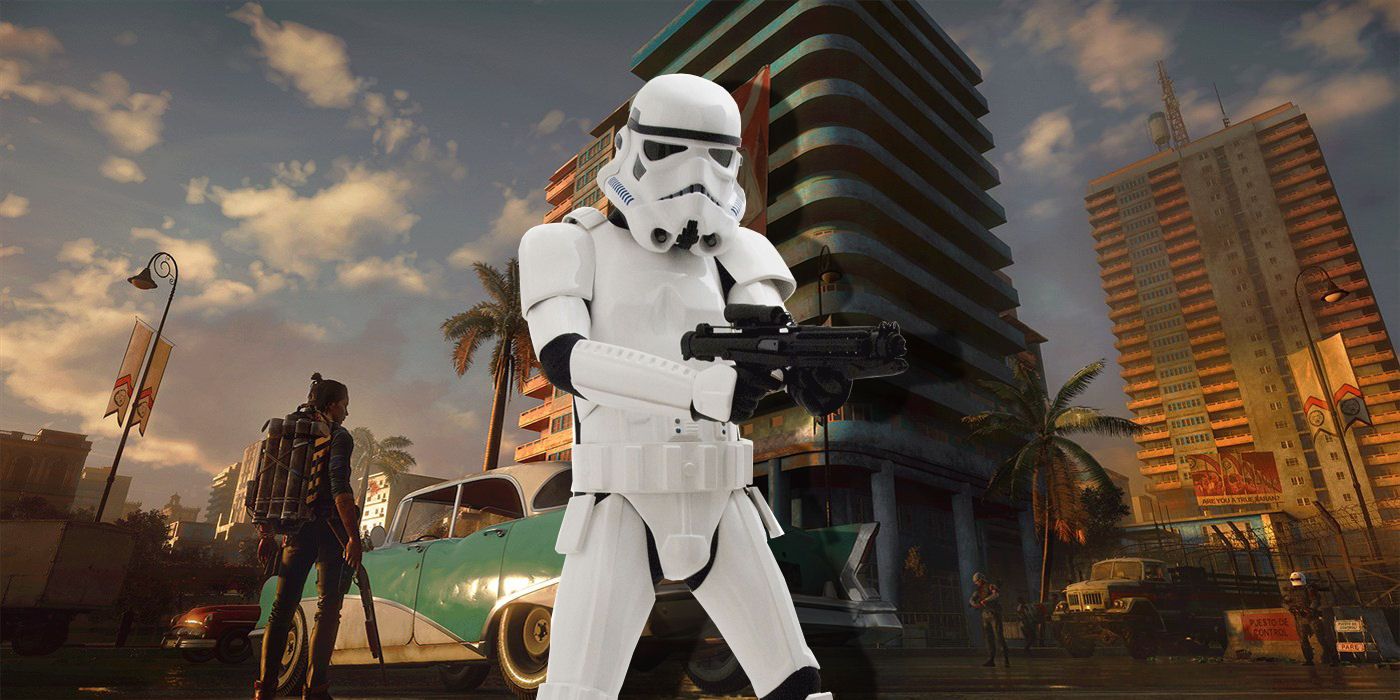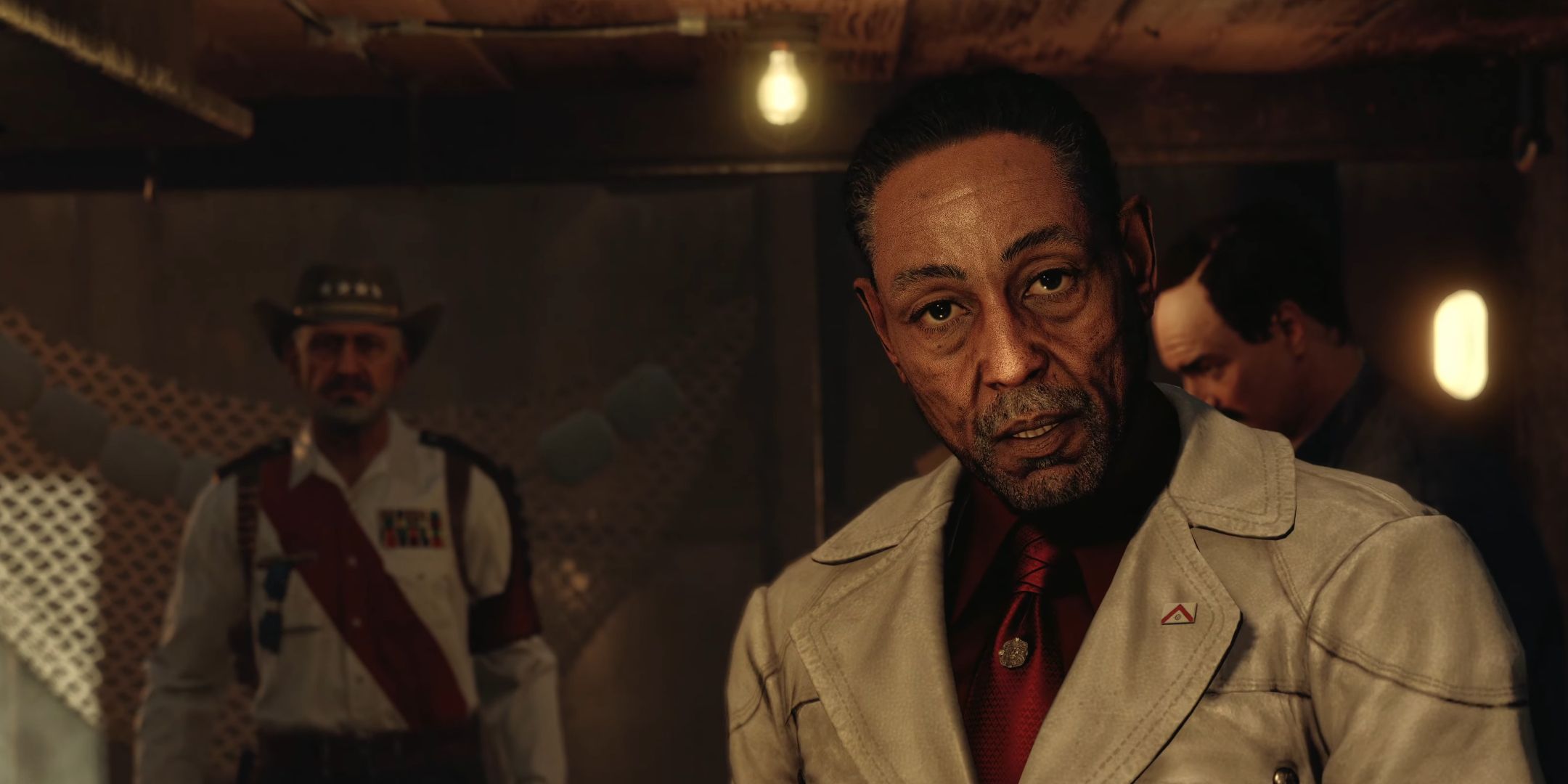What Ubisoft's Star Wars Should Copy From Far Cry & Assassin's Creed

Earlier this year, it was announced that EA's exclusive Star Wars game license was coming to an end, followed by word that a new Star Wars open world game is on its way from Ubisoft Massive, the studio behind The Division and which collaborated on Far Cry 3 and Assassin's Creed Revelations. Over the past decade, Ubisoft has developed an open world action-adventure house style exemplified through similarities between Far Cry and Assassin's Creed, but for fans wondering what the next big Star Wars game will look like, there may be as much to learn from their differences. While Far Cry games have been free-wheeling, over-the-top shooters, Assassin's Creed games have had more grounded historical narratives while playing with Ubisoft's ever-present Animus sci-fi premise.
Meanwhile, Star Wars has been looking for its next great game for more than a decade. EA's Battlefront revival initially received mixed reviews, and Jedi: Fallen Order was widely played and critically well-received, but hasn't been around long enough to appraise its impact in the long term. While Fallen Order is passingly similar to the Dark Forces/Jedi Knight games, fans continue to clamor for a sequel, remake, or reboot in the vein of Knights of the Old Republic, and Disney has tasked developer Aspyr with granting that wish. An open-world Ubisoft game would play in a similar space.
From the stable of widely renowned franchises, Ubisoft Massive has a wealth of story and gameplay expertise and resources. While the studio will certainly draw from their open-world experience with The Division games, their best bet is to draw features from the hugely popular Far Cry and Assassin's Creed franchises. Technical and narrative elements from each series could perfectly fit the Star Wars universe to bring gamers a unique experience.

The way to integrate those features will be determined by how they craft the story. Even if Ubisoft's Star Wars open-world game shouldn't be canon, creating in-game consequences to character actions is of paramount importance. In Far Cry 3, the world changes as outposts are captured - more than just flags being raised, the experience of playing the game becomes safer as the areas players have liberated fill with material resources, allies, and assignments to improve the area for the local community. The ability for the character to directly affect the environment adds to immersion in the game world for the player. A Jedi traveling from assignment to assignment in the High Republic should feel their impact on the galaxy.
Protagonists in the Far Cry games have historically been less interesting than the protagonists of Assassin's Creed, but Star Wars has always been a series about its characters. Ubisoft's Star Wars would gain from following the Assassin's Creed tradition of having the characters fit more naturally into the worlds they're exploring, rather than dropping in on vacation and getting tied into a civil war, as in Far Cry 3 and 4. The Far Cry games have been known for captivating antagonists, even if close inspection belies their complexity. A studio that worked on Far Cry 3 should seek to bring the viscerally sinister villain type to the Star Wars universe, even if they don't end up with an M rating. Ubisoft could channel Vaas's menace through original characters that reflect Grand Admiral Thrawn and Moff Gideon.
The best possible Ubisoft Star Wars game will undoubtedly draw from their open world tradition, allowing players to engage meaningfully with that world. There is a lot to still be decided about the game - there's no release date yet, and the head of the Ubisoft Massive also recently stepped down, which could lead to the game remaining in development for another year or more. Hopefully fans will see a game that pulls a detailed protagonist from Assassin's Creed, puts the emphasis on a good antagonist like Far Cry, and makes players feel like their actions have measurable effects.
from ScreenRant - Feed https://ift.tt/3vSK2KS
via Whole story

Post a Comment